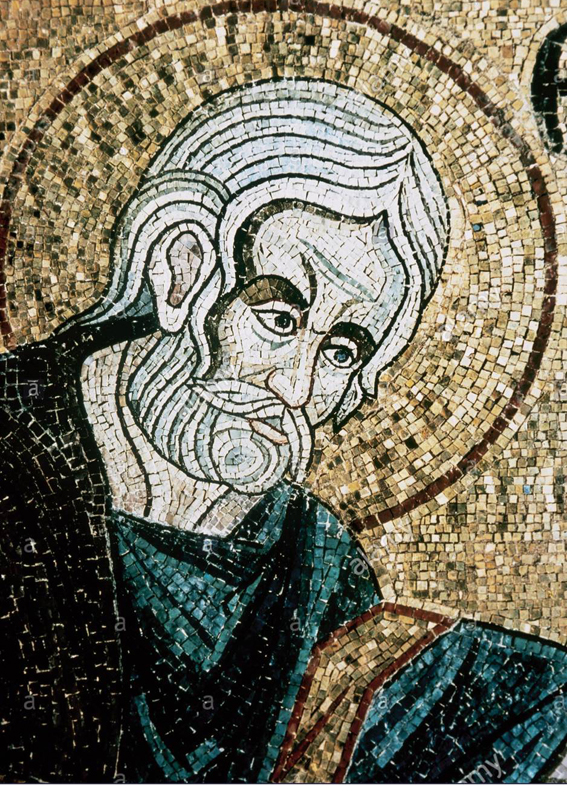

1st Letter of John (NIV)
(Chapter 1)
(Chapter 2)
2:2 He is the atoning sacrifice for our sins, and not only for ours but also for the sins of the whole world.
atone Verb 격식 속죄하다 (=make amends)
2:16 For everything in the world–the cravings of sinful man, the lust of his eyes and the boasting of what he has and does–comes not from the Father but from the world.
craving Noun 갈망, 열망
(Chapter 3)
3:1 How great is the love the Father has lavished on us, that we should be called children of God! And that is what we are! The reason the world does not know us is that it did not know him.
lavish 1.Adj 풍성한, 호화로운 (=extravagant, luxurious) 2.아주 후한
lavish on 아낌없이 주다
3:7 Dear children, do not let anyone lead you astray. He who does what is right is righteous, just as he is righteous.
lead you astray. 너를 나쁜 길로 이끈다
(Chapter 4)
(Chapter 5)
2nd Letter of John (NIV)
(Chapter 1)
3rd Letter of John (NIV)
(Chapter 1)
1:10 So if I come, I will call attention to what he is doing, gossiping maliciously about us. Not satisfied with that, he refuses to welcome the brothers. He also stops those who want to do so and puts them out of the church.
call attention to… …에 주의를 환기하다.
the Letter of Jude (NIV)

(Chapter 1)
1:3 Dear friends, although I was very eager to write to you about the salvation we share, I felt I had to write and urge you to contend for the faith that was once for all entrusted to the saints.
contend 1.Verb (특히 언쟁 중에) 주장하다 (=maintain) 2. (~을 얻으려고) 다투다[겨루다]
1:4 For certain men whose condemnation was written about long ago have secretly slipped in among you. They are godless men, who change the grace of our God into a license for immorality and deny Jesus Christ our only Sovereign and Lord.
condemn 1.Verb (보통 도덕적인 이유로) 규탄[비난]하다 2.선고를 내리다 (=sentence) 3.(좋지 않은 상황에) 처하게 만들다 (=doom)
1:7 In a similar way, Sodom and Gomorrah and the surrounding towns gave themselves up to sexual immorality and perversion. They serve as an example of those who suffer the punishment of eternal fire.
perversion 1.Noun 도착(倒錯)[변태](적인 행동) 2.(시스템·절차 등에 대한) 왜곡, 왜곡한[된] 것
1:10 Yet these men speak abusively against whatever they do not understand; and what things they do understand by instinct, like unreasoning animals–these are the very things that destroy them.
abusive 1.Adj 모욕적인, 욕하는 2.폭력적인, 학대하는
1:12 These men are blemishes at your love feasts, eating with you without the slightest qualm–shepherds who feed only themselves. They are clouds without rain, blown along by the wind; autumn trees, without fruit and uprooted–twice dead.
blemish 1.Noun (피부 등의) 티, 흠 2.Verb 흠집을 내다
qualm Noun 거리낌, 꺼림칙함 (=misgiving)
1:15 to judge everyone, and to convict all the ungodly of all the ungodly acts they have done in the ungodly way, and of all the harsh words ungodly sinners have spoken against him.”
convict 1.Verb 유죄를 선고하다, 유죄 판결을 내리다 (↔acquit) 2.Noun 기결수, 재소자
1:16 These men are grumblers and faultfinders; they follow their own evil desires; they boast about themselves and flatter others for their own advantage.
faultfinder Noun 흠잡는[탓하는] 사람, 잔소리꾼; [전기] (회로 등의) 장애점 측정기
flatter 1.Verb 아첨하다, 알랑거리다 2.자기가 잘난 줄 착각하다 3.(실제보다) 돋보이게 하다
1:18 They said to you, “In the last times there will be scoffers who will follow their own ungodly desires.”
scoffer Noun 비웃는[냉소하는] 사람. 조롱하는 사람